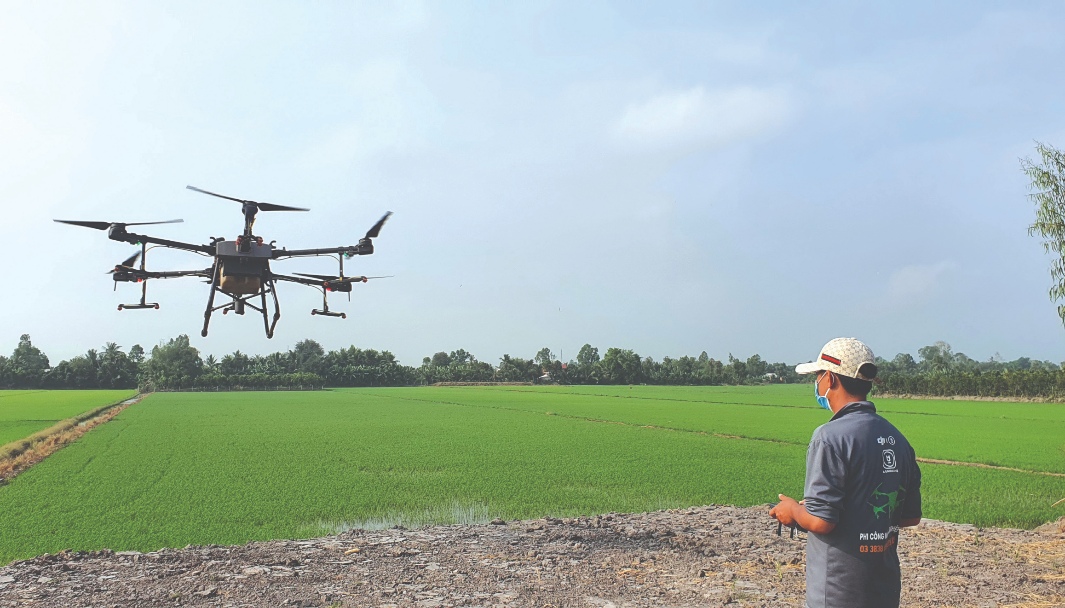An agricultural revolution is quietly unfolding in Vietnam’s Mekong Delta, the nation’s key rice growing area. Farmers are adopting practices that reduce greenhouse gas emissions, cut costs, boost productivity, and protect the environment (*). During the 2024–2025 winter-spring crop, six projects following this model are being implemented in Can Tho City and the provinces of Kien Giang, Soc Trang, and Dong Thap. For many years, rice farming in the Mekong Delta has relied on dense seeding, heavy fertilization, and frequent chemical spraying—practices that have driven up costs, degraded soil quality, and caused serious environmental pollution. Submerged paddy fields, in particular, have become major sources of greenhouse gas emissions, especially methane. Against this backdrop, a low-emission rice cultivation model has emerged, offering a new direction centered on efficiency, sustainability, and environmental stewardship. Phan Van Tam, deputy general director of Binh Dien Fertilizer Company, said, “Building on the success of the smart, climate-adapted rice cultivation program in the Mekong Delta, Binh Dien has been entrusted with implementing the Central Agricultural Promotion Project. This initiative is carried out in collaboration with provincial agricultural promotion centers, agricultural service providers, scientists, and partner businesses across the rice production chain. Launched during the 2024–2025 winter-spring crop, […]
The push to raise farmers’ incomes
By Ho The Huy









